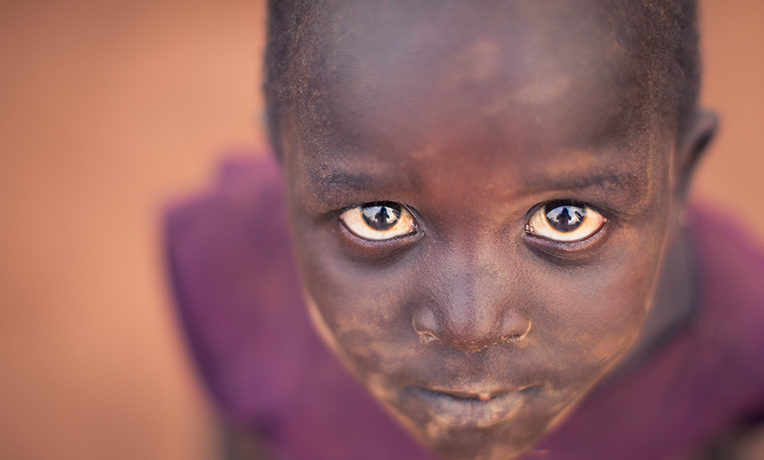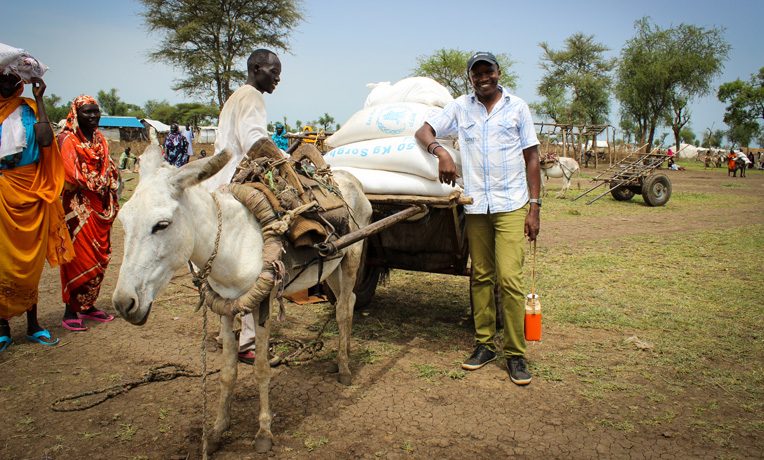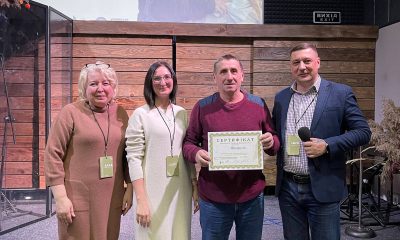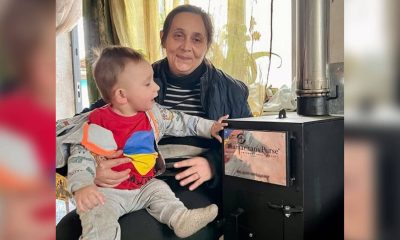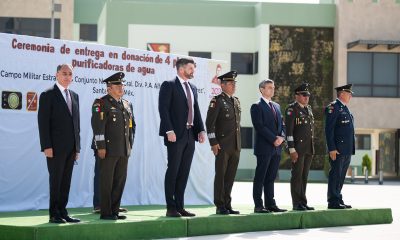It is rare to hear about South Sudan without words like crisis, hunger, or refugee attached to it. A desperate and seemingly hopeless situation has been unraveling for South Sudan since December 2013 when the nation, not yet three years old at the time, descended into civil war.
South Sudanese are now scattered across the region. Some have crossed borders into Kenya, Ethiopia, and Sudan, while more than one million are in neighboring Uganda. Others have made perilous journeys across parts of South Sudan, seeking a haven from the fighting in their home villages.
Mud, brick, and thatched-roof homes have been traded for tents in close quarters with thousands of other families at the refugee camps. Life-giving farm lands abandoned in an instant to flee for their lives while hunger is staved off only because relief organizations are delivering food rations.
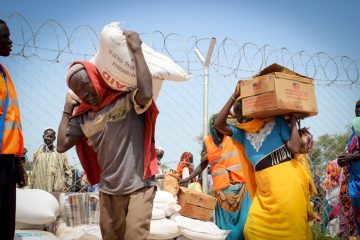
Refugees receive food rations at a Samaritan’s Purse distribution.
This is life for millions in South Sudan, and Samaritan’s Purse is on the frontlines to help in Jesus’ Name. One particular camp in Maban County is home to more than 40,000 refugees—that’s more than double the population of my hometown in Arkansas—yet a fraction of the land size.
I visited this camp recently with my friend and colleague Emmanuel Omoding who manages the Samaritan’s Purse food program in Maban. The food distributions in this camp are fine-tuned operations. Lines are orderly, beneficiaries are grateful and cooperative, and the distribution team serves with close attention to detail.
Refugees receive a month’s worth of basic food, which includes cooking oil, salt, peas, and sorghum. Non-food items such as soap bars are sometimes added.
The sorghum is packed in 50 kilogram bags, which is about 110 pounds, and I saw men and women alike toss a bag across their shoulders with little effort. I would likely have thrown out my back in a second had I tried.
When I finished photographing the dynamics and operation of the distribution, Emmanuel said, “Let’s go outside the fence. I want you to see how they share.” That’s where I saw the greatest dynamic of not only the distribution but of the camp residents—community.

Refugee women share their monthly food rations among their neighbors to ensure that each family has enough food.
After collecting their rations, the refugees gathered in small groups. Emmanuel explained how they pool all their rations and divide it among themselves so each family, no matter the size, will have enough food.
One group of women and young boys poured cooking oil into smaller containers. Another group cut pieces of the soap bars. We stopped at one large group of ladies, full of laughter and chatter, who were scooping sorghum from one bag to another.
These small groups dotted the landscape outside that fence and the community of believers in Acts came to mind in comparison:
“And all who believed were together and had all things in common. And they were selling their possessions and belongings and distributing the proceeds to all, as any had need. And day by day, attending the temple together and breaking bread in their homes, they received their food with glad and generous hearts, praising God and having favor with all the people” (Acts 2:44–47).
The refugees may not be selling their possessions and belongings to distribute proceeds, yet they are sharing what they have “as any had need.”
When the pouring, scooping, and dividing is done, they load their food on a rickety cart pulled by a stout mule, leading it off to their homes. It will be one month before food comes again. Hopefully, each family will have enough to last.
Life is unimaginably and unquestionably hard for South Sudanese refugees, but caring for each other today eases the bleak uncertainty of tomorrow.
